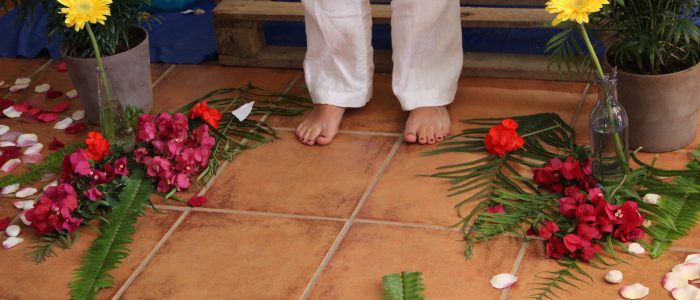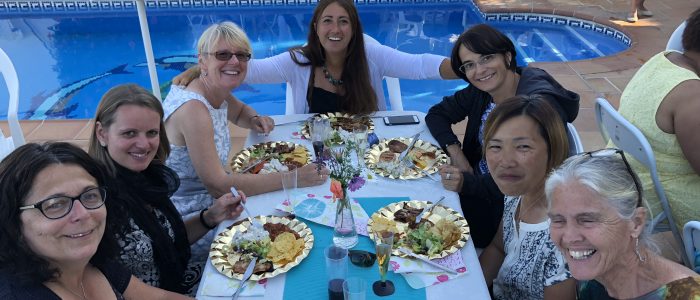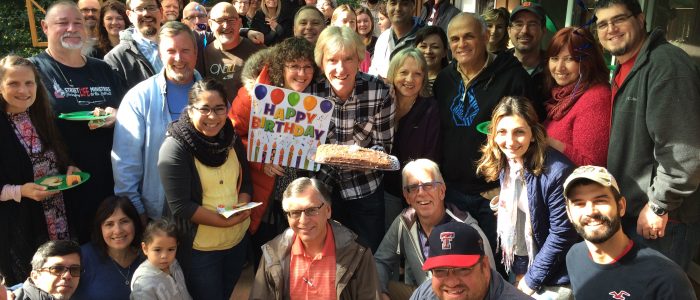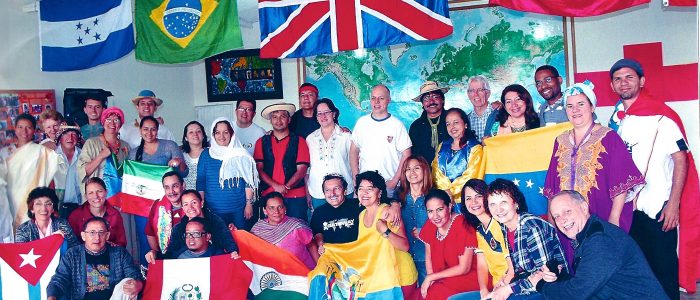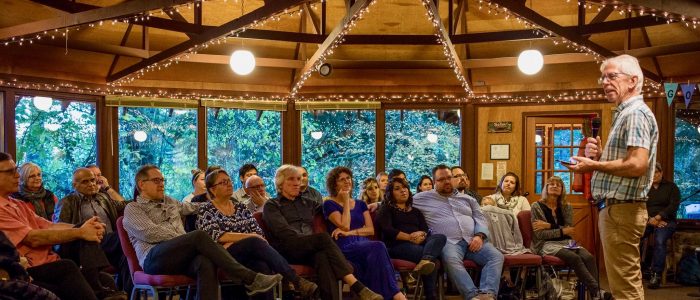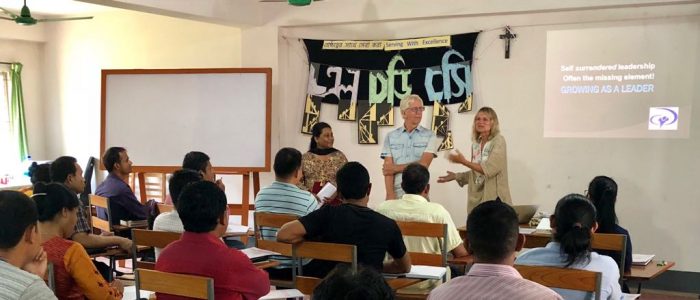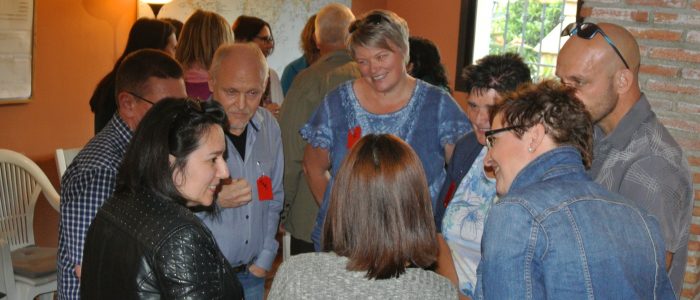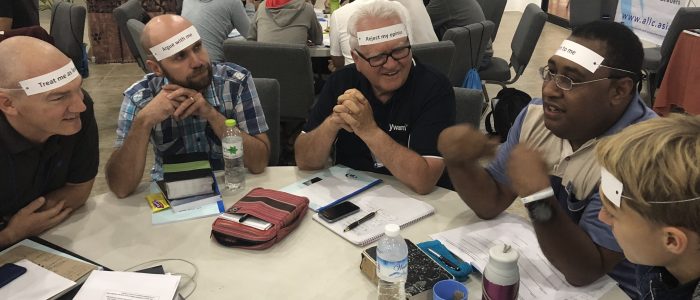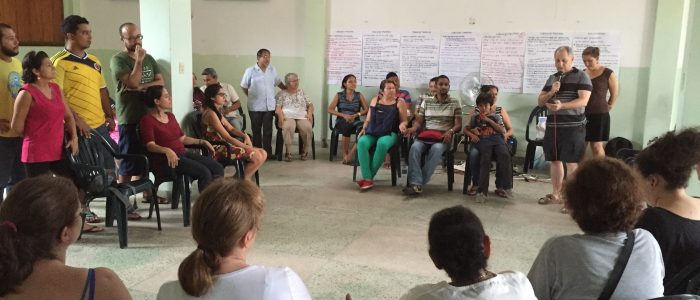What are the key themes?
Subjects and basic skills to be learned will include:
* Understanding your gifts and calling as a leader
* Practical mentoring – Jesus Style
* Leadership formation and the stages of growth of a leaders life
* Developing your personal mission statement and ministry philosophy
* Small group dynamics
* Different aspects of Spiritual leadership
* Team building and leadership team development
* Leadership styles with an emphasis on coaching
* Character and spiritual disciplines of the leader
* Conflict resolution and loving confrontation
* Dealing with transition
Assignments: Through the assignments and projects given in the course you will develop tools to give you a clearer perspective of your future ministry as well as tools to help you develop the people you called to lead.
LDC Overview Curriculum
Week 1 – knowing yourself, your gifts, your personality. (using DiSC, Myers Briggs and spiritual gift assessments). Looking at how you respond to other personalities, and how you can understand your co-workers and ways to improve your effectiveness, especially in a YWAM team leading setting. Prophetic prayer brings about revelation into the obstacles and hindrances in our lives and relationships(This is the foundation for the rest of the whole course. ) Understanding hospitality – as a lifestyle
Week 2 – how God develops a leader. Biblical character studies. Looking at your own life and how God has used your life experiences to shape you (the time line). What are your deep values that you live and minister from? Team leadership principles : Apostolic, prophetic, operational and pastoral giftings working together on leadership teams. How to develop intercession, business and ministry as part of every staff and leadership team meeting for growth and unity.
Week 3 – Inner life ministry week. Biblical teaching and ministry to deal with past hurts, situations in your past life which affect who you are today and rob you of who God really intends you to be. Dealing with conflict in relationships and team life and looking at models of reconciliation.
Week 4 – Looking at our lives as leaders and establishing priorities of roles and then setting goals for growth. Pitfalls that can hinder development in our leadership – Money, sex and power. Developing the positive qualities of stewardship, sexual purity and servant-hood.
Week 5 – Developing personal direction statements to identify where you are going, and the values that you will live on route. Looking at Jesus’s model of mentoring, the character needed and the strategy for building up others and releasing them to God’s intentions for their lives. Recognising the multiple levels of mentoring and how to identify your needs for growth, then how to bless others in the mentoring process.
Week 6 – Looking at YWAM International, answering questions about the mission and any issues arising through the course. Then bringing closure to the school in a number of different ways.
A manual on almost every course topic is given out. Bring a big suitcase! Seriously, do allow for about 3-4 Kg of manuals to take home at the end of the course.
Student Overview of the LDC
The school is designed to cater for people with at least 5 years experience in YWAM, and currently involved in leading others in ministry. It is U of N accredited (6 credits). A good working knowledge of English (written and spoken) is necessary for the UK course. The curriculum is lived out in the context of the school, and modeled and processed according to the following factors:
Factors built into the school
1. All staff sit in on every class to be involved in interaction with delegates
2. Regular worship and ministry times where you can encounter God’s presence in a powerful way.
3. Spiritual workshops every week on practical aspects of leading in the anointing of God. Topics covered include: overcoming the fear of man, working with the Holy Spirit in prayer, practicing prophecy, growing in boldness through proclamation, stepping out of comfort zones in applying God’s power.
4. Students mentoring one another in groups of three – (1 session a week), to review teaching, hold each other accountable, openness with struggles, repentance, prayer for each other, encouragement.
5. Small group processing or mentoring times (1 session a week). 5-6 people, with a staff member facilitating discussion and evaluating progress.
6. Regular evaluation of teaching and events taking place throughout the week by the whole class – observations, applications, learning points.
7. Weekly writing of a personal pictorial journal – highlighting the areas where God has impacted us and the application we have done or plan to do. Evaluated by staff.
8. An in-depth time of listening prayer where each student is individually prayed for by a small group, to hear from the Lord on their behalf and bless them, confirm direction, exhort etc.
9. A presentation by each student, on a deeply held value, to the other delegates, with evaluation (eg holiness, unity, teamwork)
10. Alternative forms of worship modelled and enjoyed!. Family worship as appropriate. Delegates helping to lead worship as appropriate
11. One to one mentoring times by staff on any issue, personal or ministry related. Staff are fully available for this.



